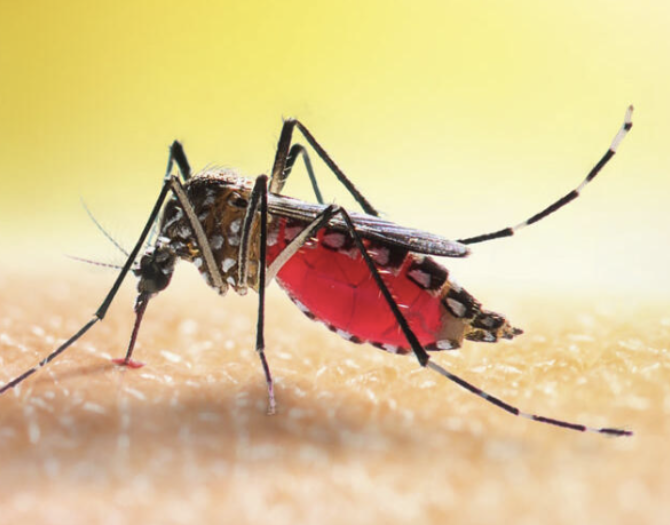Insecticide exposure did not just make mosquitoes sick; it supercharged their immune systems against malaria parasites.
Scientists have discovered that pyrethroid insecticides,
which are commonly used in bed nets and indoor sprays, do more than just kill
mosquitoes.
They make mosquitoes (those that are exposed to insecticide but survive) less likely to carry and transmit malaria by activating immune responses that kill the disease parasite during development inside the insect.
The study, which has not been peer reviewed, is available on bioRxiv.
It is titled, “Exposure to pyrethroid insecticides modulates immunity of Anopheles against Plasmodium falciparum.”
“These findings highlight an
overlooked secondary mode of action for pyrethroids and reinforce the importance of sustained
pyrethroid usage in Insecticide Treated Nets, even in the face of high levels of pyrethroid resistance in mosquitoes,” the authors wrote.
This discovery offers a sigh of relief in Kenya and other
African countries, where insecticide resistance in mosquitoes has raised fears
about the long-term effectiveness of bed nets. Malaria kills about 10,000
Kenyans every year, according to the Kenya Malaria Indicator Survey 2020.
The study zeroed in on pyrethroids, the only insecticides
approved for use in insecticide-treated nets (ITNs).
They are meant to kill mosquitoes, but over time, many Anopheles
mosquitoes (the main malaria vectors) have developed resistance to these
chemicals, which led scientists to investigate whether exposure still had any
beneficial effects for malaria control.
The team used resistant Anopheles mosquitoes from Burkina
Faso and found that even a single, non-lethal exposure to permethrin—a common
pyrethroid—increased levels of reactive nitrogen species (RNS) in mosquito
tissues.
These highly reactive
molecules are part of the insect’s immune arsenal and are known to attack
invading parasites.
“This RNS increase activates a part of the mosquito’s immune
system known as the IMD pathway,” the authors explained. “It leads to nitration
around the midgut epithelium—the tissue the malaria parasite must cross—and
destroys the invading ookinetes,” which are early forms of the parasite.
The researchers likened this to fortifying the mosquito’s
gut wall, preventing the malaria parasite from establishing infection in the
insect’s body.
The scientists said they further gave mosquitoes a dietary
supplement called L-arginine, a compound that boosts nitric oxide, a key RNS
molecule.
Remarkably, this
feeding method mimicked the immune boost seen with insecticide exposure,
confirming that RNS plays a critical role in fighting the malaria parasite.
They found that both L-arginine-fed and insecticide-exposed
mosquitoes had fewer parasites in their guts, lower infection prevalence, and
reduced ability to transmit malaria.
“This shows that the reduction in parasite development was
not just a fluke of insecticide exposure,” the authors noted. “It’s a
consistent immune response tied to RNS generation.”
The most dramatic effect came early in the infection cycle.
When mosquitoes had elevated RNS levels, the malaria ookinetes—the parasite
form that crosses the mosquito gut—were fragmented and destroyed before they
could mature into infectious forms.
One of the study’s key discoveries was that pyrethroid
exposure led to a proliferation of immune cells called granulocytes, which are
responsible for key defensive functions.
“We observed a rise in granulocytes from 10.8 per cent in
control mosquitoes to nearly 32 per cent after insecticide exposure,” the
researchers wrote.
In other words, insecticide exposure didn’t just make
mosquitoes sick; it supercharged their immune systems against malaria parasites.
To understand the real impact of this immune activation, the scientists created a mathematical model simulating human
and mosquito populations over one year. They found that treating just 50 per cent of
mosquitoes with a sub-lethal dose of permethrin could reduce malaria infections
in children under five by 12.8 per cent. At 100 per cent coverage, infections dropped by more
than 30 per cent.
“These results suggest that pyrethroids may still benefit
malaria control even when they don’t kill mosquitoes, by reducing the parasite
load in the surviving insects,” the authors said.
The researchers are from Heidelberg University and the Bernhard Nocht Institute for Tropical Medicine, Germany.
